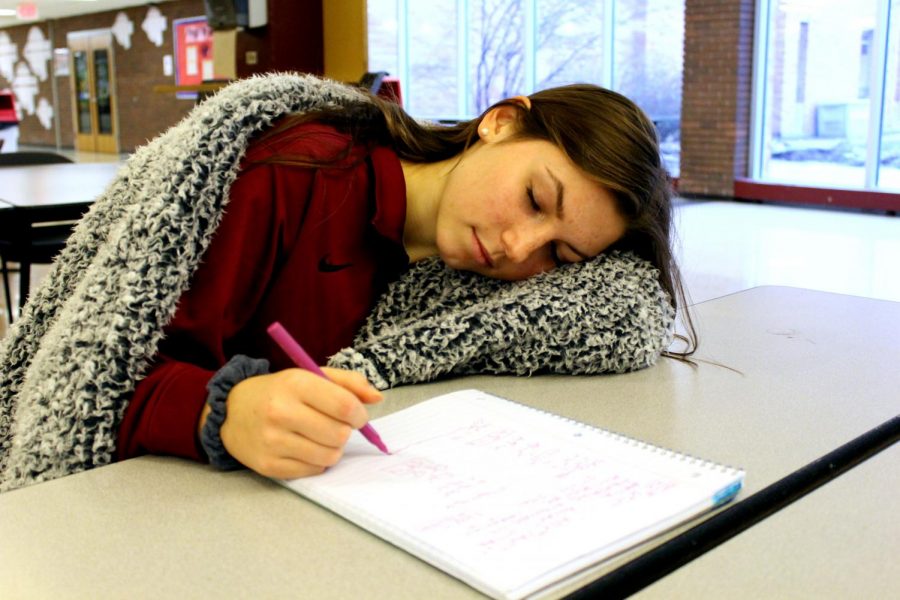Don’t Sleep on Sleep
When students don’t get enough Z’s at night, their bodies aren’t able to work effectively the next day.
For high school students, getting enough sleep is crucial to making a positive difference in one’s everyday life. For some students, however, getting enough sleep while also balancing a social life, sports, family and completing homework is a difficult task to accomplish.
According to Child Mind Institute author Juliann Garey, sleep deprivation can lead to an increased risk of injuries, substance and alcohol use, changes in mood, mental illnesses such as depression and anxiety and many more negative effects on teenagers’ minds and bodies. Additionally, some of the leading causes for sleep deprivation are technology, homework and overscheduling of one’s life.
“The physical, mental and behavioral consequences of sleep deprivation are profound,” Garey said. “Sleep deprivation puts teenagers into a kind of perpetual cloud or haze that can negatively affect a teenager’s mood, ability to think, to react, to regulate their emotions, to learn and to get along with adults.”
Sleeping is the body’s way of resting, relaxing and restoring energy. For a growing teenager, sleep can impact their life in many ways. If one does not receive the necessary amount of sleep, sleep deprivation can lead to lifelong problems and in extreme cases, death.
For someone that is in AP classes and involved in multiple sports year round, students can have difficulty managing their time. Junior Samantha Champney, alongside many other high school students, has a hard time getting things done while also getting a good amount of sleep.
“I get a ton of homework everyday and I have to stay up really late to get it done,” Champney said. “Sometimes I don’t even finish [my homework] because I just need to go to bed. Sports and homework combined make it even harder to get both done and get the proper amount of sleep.”
While getting enough sleep is often problematic for teenagers, sleep deprivation can be prevented in many ways. Technology plays a big role in sleep deprivation, so limiting the amount of screen time one has in the hours before bedtime is helpful in allowing one to fall–and stay–asleep.
“[I have] seen adolescent bedtimes pushed back an hour to an hour and a half over the years since teens started doing their homework on computers,” pediatrician Max Van Gilder said. “On average, my teenage patients are going to bed at around 12:30 a.m. now. Teens who are up late writing papers on computers or chatting with their friends are effectively creating an even more stimulating environment that will only keep them from being able to fall asleep when they want to.”
Along with technology, homework is another factor that can be improved. Homework can take hours to complete each night; adding a sport to the mix only decreases the amount of time a teenager has to complete the amount of work that is assigned each day.
“Many students do extracurriculars for a few hours after school and cannot start homework until after dinner,” pediatrician Craig Canapari said. “The typical teenager requires 8-9 hours of sleep per night, so even a teen with good sleep habits [is] generally sleep deprived.”
Sleep deprivation is well-known and experienced by many high school students. The causes of this are clear to anyone who experiences it, yet it continues to be experienced by students. The problem has not been effectively addressed and there has been no true solution to sleep deprivation yet.












